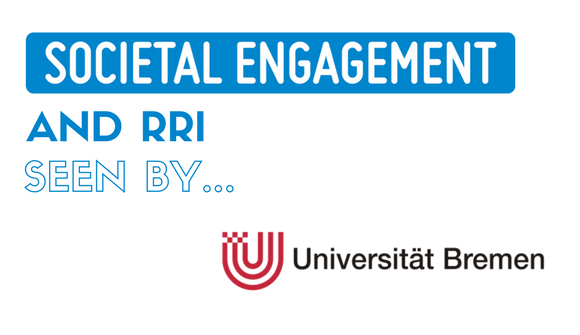How do you understand Societal Engagement in biosciences research? According to our understanding, Societal Engagement in biosciences research is the encouragement of all relevant societal actors for an engagement in the biosciences research and innovation process. The relationship between science and society and the communication between these groups has undergone a great change: from “science” and ‘”society” and the “deficit model of public understanding” (Gross, 1994: 6) to the idea of “science with and for society” and public participation. Two crucial points for investigating as well as fostering interactions between scientists and citizens at the University of Bremen are the technology transfer and the communication of scientific knowledge through contextualization. There are two different ways to transfer concepts, methods, results and applications. Science-internal technology transfer means transfer to the scientific community (as a part of society). Science-external technology transfer refers to transfer into economy and/or society. The diversity of transfer products and target areas requires a broadened concept of technology, since a theoretical concept may well be the starting point of an application development. Research contextualization supports the communication process through emphasizing the particular societal relevance while obliging scientists to take into account ethical and political issues as well as issues of public interest/relevance. What are the current standards and actions to achieve better Societal Engagement in the University of Bremen? The relevance of technology transfer within the research institutes of the University of Bremen seems to be very heterogeneous, so far. This is due to the fact that both basic research as …
Tag Archive
Below you'll find a list of all posts that have been tagged as “Responsible Res”




